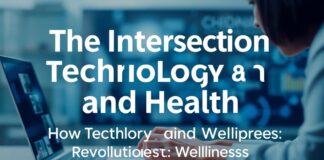Securing AI: Leveraging Web3 Cloud for Enhanced Protection
How Web3 Is Disrupting AI Cloud Computing
Centralized data networks have long been a target for cybercriminals due to their inherent vulnerabilities. With a single point of failure, these networks are a goldmine for hackers looking to gain access to sensitive information. In 2024 alone, billions of digital records were stolen, resulting in an estimated $10 trillion in damages. From AT&T’s customer information to personal health records and unique passwords, no entity is safe from these breaches.
Governments and critical infrastructure also face the threat of centralized network breaches, with millions of records being stolen from various agencies and companies. Despite significant investments in cybersecurity, data breaches continue to grow in size and frequency. It has become evident that incremental solutions are not enough to address these vulnerabilities. A complete overhaul of the infrastructure is necessary to ensure data security.
AI exacerbates this issue by requiring access to vast amounts of sensitive user data to function effectively. However, the reliance on public cloud networks for processing complex AI tasks poses a significant security risk. Companies like Apple have acknowledged the limitations of traditional cloud models and the need for a more secure solution to connect sensitive user data with AI models.
Introducing Blockchain-Orchestrated Confidential Cloud (BOCC)
BOCC networks offer a revolutionary solution to the data security challenges posed by centralized networks. Built on confidential hardware and governed by smart contracts, BOCC platforms like Super Protocol provide a secure environment for data processing. By leveraging trustless execution environments (TEEs), these networks ensure the confidentiality and integrity of data and code.
The implications of BOCC technology address key concerns raised by companies like Apple:
– Privacy and security verification: Smart contracts verify the proper use of user data.
– Workload and program transparency: The network cryptographically proves the correct usage of hardware, data, and software.
– Single point of failure: Network resources are only accessible by the owner’s private key, minimizing the risk of data exposure.
By applying BOCC technology, not only can cloud AI be secured, but various centralized data networks can also benefit from enhanced privacy and security without compromising performance. The future of data security lies in blockchain-orchestrated solutions that ensure verifiable protection against cyber threats.
Expert Quote: David Attermann
David Attermann, a seasoned investor in the crypto space, emphasizes the importance of leveraging Web3 technology to enhance data security in a rapidly evolving digital landscape. With a background in finance and technology investing, Attermann brings a unique perspective to the discussion on securing AI and cloud computing. His insights shed light on the transformative potential of blockchain-orchestrated solutions in safeguarding sensitive information in an increasingly interconnected world.

















